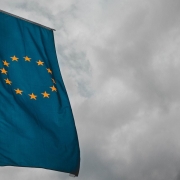Brexit IT Survival: Following the outcome of the referendum on the UK’s membership within the EU, businesses in the UK face a period of uncertainty as Brexit negotiations take place.
In the UK Cloud Snapshot Survey 2017, Serviceteam IT conducted research regarding the future challenges businesses in the UK face and the subsequent effect this will have on their IT plans. The survey conducted as part of this research revealed that almost 20% of respondents felt that Brexit presented the greatest challenge to their IT plans over the next 3 years.
When interviewed Ben Griffiths, the head of systems from Analysys Mason, argued that “anything to do with Brexit is uncertain” and “makes life more complicated”. In the face of this uncertainty and complexity it is imperative that firms don’t just remain passive regarding the changes happening around them. The following outlines some of the key things businesses can be doing to prepare for the challenges Brexit brings with it.
1. Assess and Plan
The first thing that businesses should consider are the elements of their business that are affected by the EU. For example, UK legislation may change as a result of Brexit as laws previously controlled by the EU may soon become invalid in the UK. As a result of these changes businesses need to be aware of any changes in existing contracts that may occur. For example, have you reviewed your software licensing agreements? Most EULA (End User Licence Agreements) refer to EU law or jurisdiction. Vendors could potentially revoke licence usage and enforce a new licence agreement, with new costs associated.
In order to mitigate any potential issues that may arise as a result of any changes that may impact businesses planning is essential. Businesses need to conduct a review of all aspects of their business that have any links to the EU and formulate a strategy to cope with these changes.
2. Think about your customers
Many businesses in the UK will have a customer base that includes individuals from within the EU. Prior to Britain’s exit from the EU businesses need to think about their customers and how they will be affected by the changes resulting from Brexit. This may include looking at potential customer base that may exist in other areas of the world, outside of the EU for example.
3. Supply chain
Another aspect that also needs to be considered is that of the supply chain within businesses. Additional licenses for exporting and importing within the supply chain may be required as a result of Brexit and it is important that this is considered before any changes take place. This helps to ensure that businesses are prepared for what lies ahead and therefore can avoid disrupting operations.
4. Regulation
It is also important to consider the changes in regulation that may occur as a result of Brexit. At the moment the UK is subject to the regulation imposed by the EU. These regulations may not continue to be enforced in the UK and therefore businesses need to be able to adapt to any changes in regulation that may apply to them in the UK post Brexit.
One significant change in legislation is the UK Data Protection Bill to the House of Lords, which will bring the European Union’s General Data Protection Regulation (GDPR) in to UK law. Read more about GDPR.
5. Staff
Although it is not yet clear what the effect of Brexit will be on EU citizens living in the UK, it is important that businesses identify the members of their staff that will be affected and how they can help. In addition to this, businesses need to plan for the future and look at their recruitment plans. If it is likely that EU nationals will be hired in the future businesses need to gain an understanding of the immigration application process in order to be able to provide the best support to applicants.
6. Data protection
As of May 2018 the EU’s new General Data Protection Regulation (GDPR) will come into effect and replace the existing Data Protection Act. As the UK will still be a member of the EU at this point businesses in the UK must conform to this regulation. However, once the UK leaves the EU GDPR will apply to UK citizens’ data, and it will still apply to any businesses possessing data regarding EU citizens or businesses. This means businesses in the UK need to ensure that they comply with the demands of this legislation or face the risk of large fines if found to be non-compliant.
7. Data Sovereignty
According to the research conducted by Serviceteam IT, 62% of respondents listed GDPR as the biggest challenge to their IT plans over the next 3 years. With the advance in the adoption of the cloud, many businesses have data stored in data centres across the globe. Businesses need to be aware of the data sovereignty of their data in order to ensure that it complies with the appropriate regulation. Data concerning EU citizens stored in the US for example still needs to comply with GDPR.
There are a number of immediate steps that businesses can take in order to get ahead in the lead up to Brexit. A wait and see strategy is not an option for businesses in the UK and leaders of businesses need to look outwards to identify both the opportunities and challenges Brexit brings with it. Preparation and adaptability are key in order to succeed in this time of uncertainty.









Leave a Reply
Want to join the discussion?Feel free to contribute!